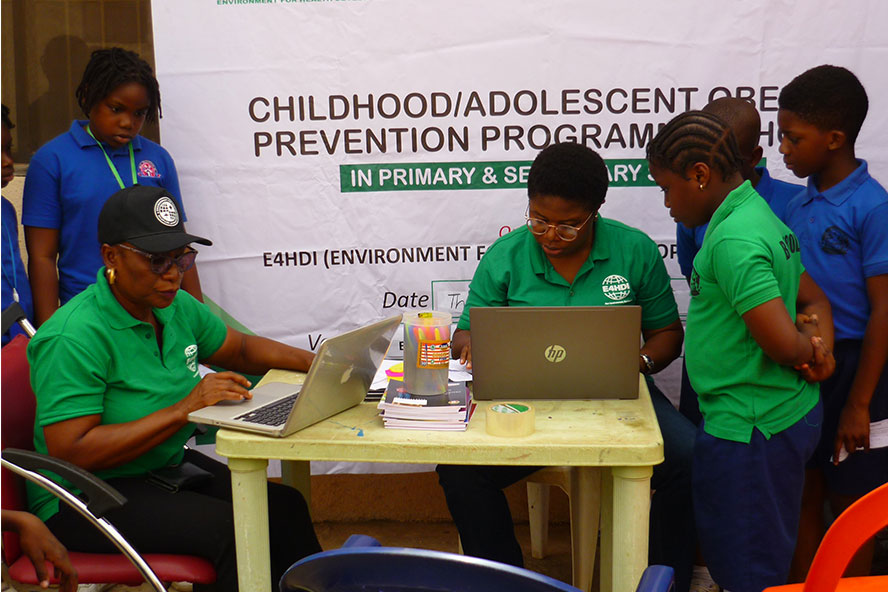Childhood obesity has emerged as a major public health issue in both developed and developing countries. It is quickly becoming a global public health concern, not only due to increased BMI but also due to the health consequences. While childhood obesity is expected to affect only developed, affluent countries, the current trend shows a gradual shift in dimension towards low-income, developing countries such as Nigeria. In Nigeria, identified causes include changes in lifestyle and behaviour, medication, cultural beliefs, food habits and choices, and individual genetic make-up.
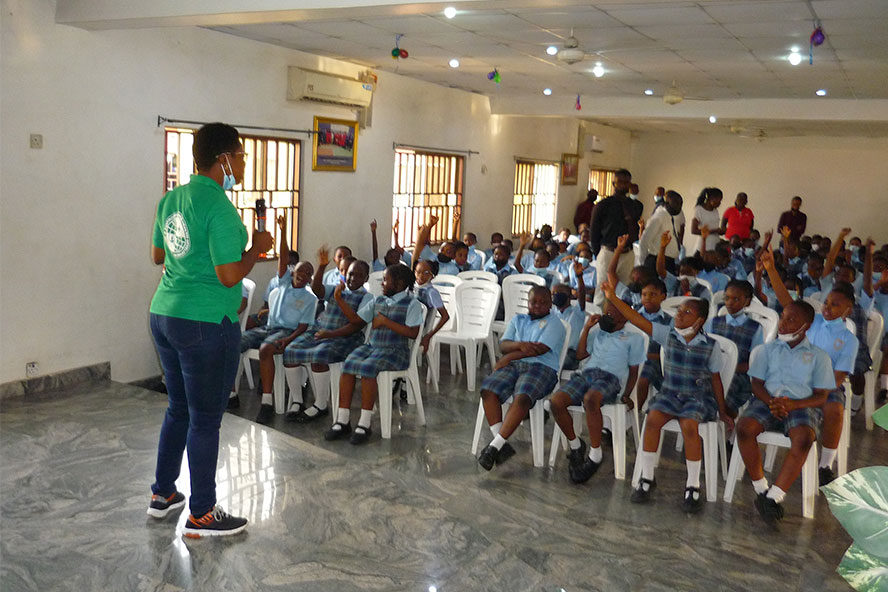
Poor self-esteem and self-image, problems integrating with peers, depression, anxiety, and chronic diseases associated with excess adiposity are just a few of the unintended psychosocial and medical costs associated with childhood obesity. Children and adolescents who are overweight or obese are frequently stigmatized.
E4HDI introduced (CHOPP) in Abuja in the last Quarter of 2021, covering some primary and secondary schools and reaching 670 pupils and students as well as their teachers. This impactful programme was recently scaled up to two private schools in Abuja, namely Premier International School and BJ Schools with the main purpose of raising awareness of obesity and promoting healthy nutrition and physical activities among the school children, and teachers to engender healthier habits and reduce obesity.
The programme, which was conducted in March 2022 reached 311 school children comprising 145 boys and 166 girls across the schools. They had increased knowledge of obesity prevention and were reached with information on healthy nutrition and physical activities.
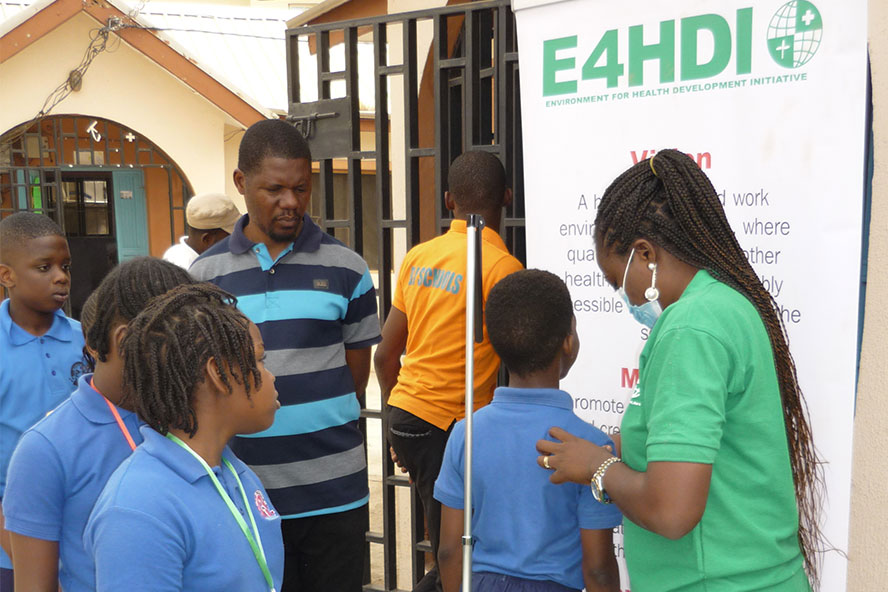
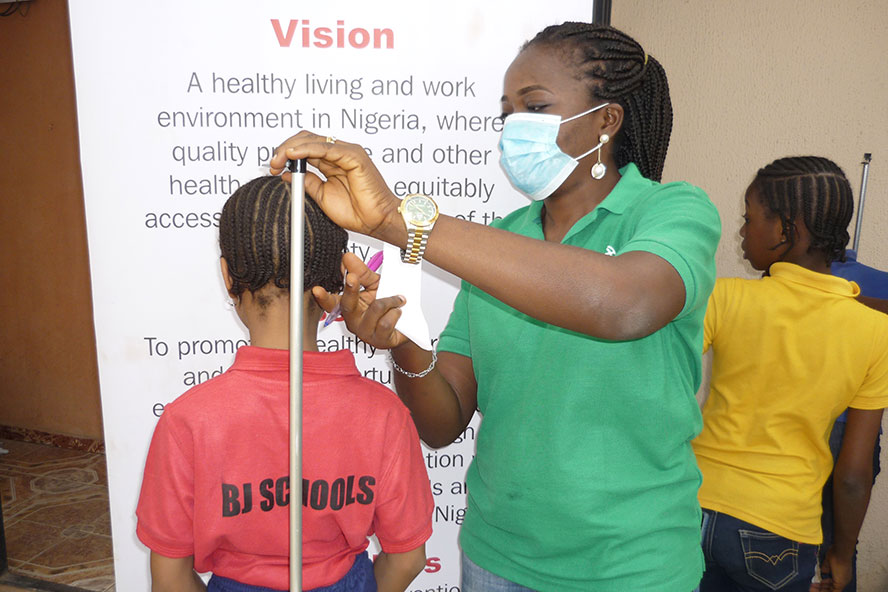
With parental consent, the Body Mass Index (BMI) of the school children were assessed to ascertain those with abnormal BMI. Recommendations were sent to parents/guardians of the children because they have the potential to steer children in directions that lay the foundation for lifelong good health. Parents/guardians can help their children develop long-lasting healthy eating habits by providing a variety of healthy foods at the home, limiting sugary drinks and junk food, and serving as role models for healthy eating.
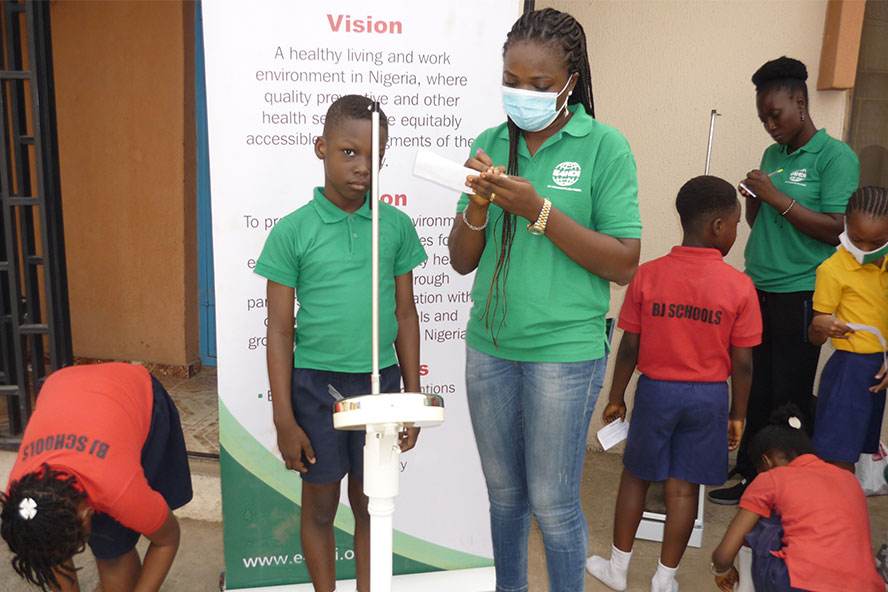
To combat childhood obesity, we must all work together. Governments, schools, parents, and the public and private sectors all have a role to play in making food and drink healthier for children and encouraging them to make healthier choices. Obesity reduction has clear benefits in terms of saving lives and reducing inequalities. It is an effective strategy to avoid the early onset of diabetes and other non-communicable diseases. Therefore, with the active participation of government, schools, communities, families, and individuals long-term, sustainable change can be achieved for the overall benefit of society.

